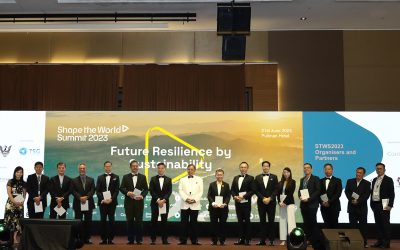The break-up letter’s evolution into the break-up text message is but one offbeat example of just how closely linked technology is to human relationships. These days it’s not unusual for people to announce the end of a relationship — or the start of a marriage — on social networks like Facebook or Twitter. As people’s dependence on the Internet continues to rise, it only makes business sense for companies to develop online strategies. Unfortunately many businesses stop at creating a website they rarely, if ever, update. “We tend to get caught up with the technology, and we forget that at the heart of technology are people,” Nicole Brion, Senior Strategy Consultant at Consulus, explained at a seminar on online presence, recently held at the Singapore Chinese Chamber of Commerce and Industry. “For any kind of technology, if it doesn’t have a meaningful use for people, it’s just a waste of time,” Brion added, stressing that an online strategy does not equate to getting the company website on the Web. A website is simply one of the many tools an organisation can use to implement an online strategy, and purpose and strategy are needed to guide the usage of these tools
Through actual case studies, Brion gave examples of how an effective online strategy utilises an organisation’s existing ability, increases the brand’s influence among the customer base, showcases the brand’s differentiation and above all, furthers the brand purpose. One case study showed how the interactive nature of the Internet helped the biggest bank in Brunei launch and sustain a ground-breaking campaign, while another focused on how online technology can be used to build a community around a brand. Purpose aside, it is also crucial for companies to understand the relationship between online and offline strategies. Disregarding context leads to companies wasting their time with ineffective methods, such as repurposing print e-mailers for web use and placing banner ads on social networks. According to Brion, a company’s online presence should not be centred around disseminating as much information to the reader as possible but around maintaining two-way communication. By listening to the customer more, the brand gains new insights on how to complement their needs better. In turn, the customers are more open to hearing what the brand has to say. At the end of the presentation, Brion listed three questions that should be kept in mind when evaluating the effectiveness of a brand’s online presence:
- Does it work toward the brand purpose?
- Does it help the brand build relationships with the customers?
- Does it help build a community around the brand?
The presentation was followed by a workshop, where participants tried their hand at developing a purposeful online strategy for the fictitious company in the brand exercise case. “The workshop allowed us to practise the concepts brought up earlier [the first part of the seminar]. This gave us a deeper impression and better understanding of the ideas covered,” Sunny Cheung, workshop participant and Manager at Glow International, said.





